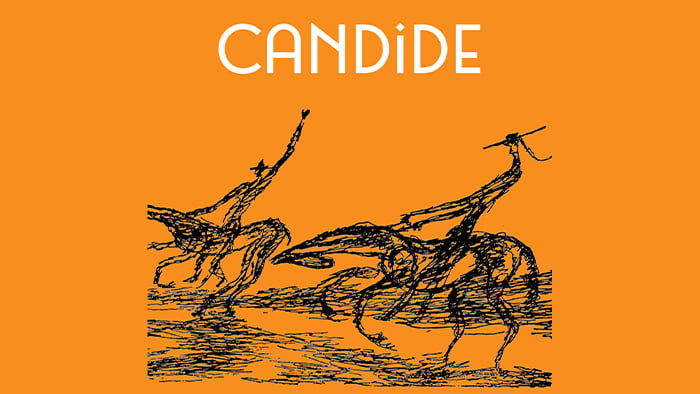“Candide” is a satirical novel written by Voltaire, a French philosopher and writer, and was first published in 1759. The novel is a biting critique of the prevailing philosophical and social ideas of the time, and it serves as a reflection on the nature of human suffering, the pursuit of happiness, and the existence of evil in the world.
The story follows the adventures of its eponymous protagonist, Candide, a young man who is raised in the optimistic philosophy of his mentor, Pangloss. According to Pangloss, this is the “best of all possible worlds,” and he argues that everything that happens is for the best, even in the face of extreme adversity. However, as Candide embarks on a series of misfortunes and encounters with war, natural disasters, and human cruelty, he begins to question the validity of Pangloss’s optimistic worldview.
Throughout the novel, Voltaire uses satire and irony to expose the hypocrisy and absurdity of various institutions and beliefs. He targets organized religion, political systems, and societal conventions, presenting a scathing critique of the corruption and hypocrisy that often accompany them. Voltaire’s wit and humor are employed to highlight the irrationality and contradictions present in the world, challenging readers to reevaluate their own assumptions and beliefs.

“Candide” explores themes such as the nature of evil, the existence of God, and the complexities of human nature. It exposes the flaws in the doctrine of blind optimism, arguing that unchecked optimism can blind individuals to the harsh realities of life and prevent them from taking meaningful action to address societal injustices.
Voltaire’s novel is known for its episodic structure, with Candide traveling through various countries and encountering a wide range of characters and situations. Each episode serves as a platform for Voltaire to satirize different aspects of society, presenting a panoramic view of the human condition.
“Candide” remains a classic work of literature due to its timeless themes and its relevance to societal issues. Its critique of blind optimism and its call for reason, tolerance, and human compassion continue to resonate with readers. The novel’s enduring popularity lies in its ability to provoke thought and challenge established norms and beliefs, making it a powerful piece of social and philosophical commentary.
In conclusion, “Candide” by Voltaire is a satirical novel that criticizes the prevailing philosophical and social ideas of the 18th century. Through its protagonist’s journey, the novel exposes the irrationality and cruelty present in the world, challenging the concept of blind optimism. Voltaire’s wit and satire shed light on the flaws of institutions and beliefs, urging readers to question established norms and strive for a more compassionate and reasoned society. “Candide” remains a timeless masterpiece that continues to captivate and provoke readers with its sharp social commentary and philosophical insights.
 Skip to content
Skip to content








